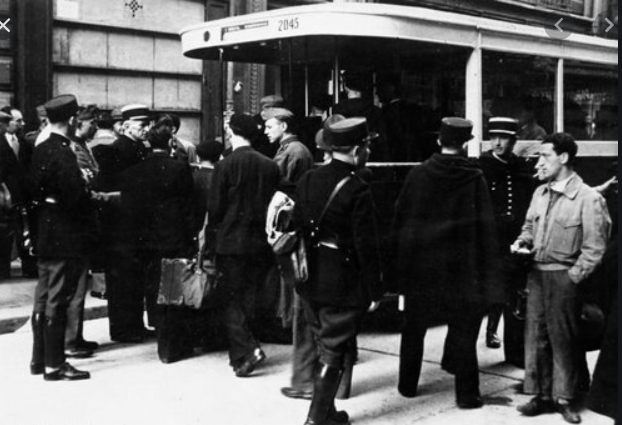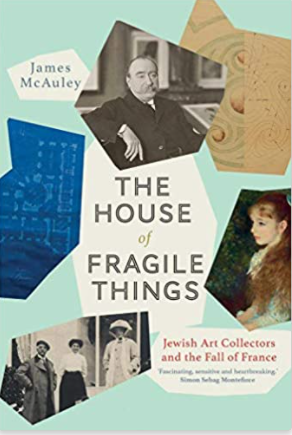
Jewish art collectors in France



Years between 1870 and the end of World War II, several prominent French Jews pillars of an embattled community invested their fortunes in France’s cultural artifacts, sacrificed their sons to the country’s army, and were ultimately rewarded by seeing their collections plundered and their families deported to Nazi concentration camps.
James McAuley explores the role that art and material culture played in the assimilation and identity of French Jews in the fin-de-siecle, including the works of Marcel Proust and the diaries of Jules and Edmond Goncourt the Camondos, the Rothschilds, the Ephrussis, the Cohens d’ Anvers McAuley shows how Jewish art collectors contended with a powerful strain of antisemitism, as they were often accused of invading France’s cultural patrimony. The collections these families left behind many ultimately donated to the French state were their response, tragic attempts to celebrate a nation that later betrayed them.
The House of Fragile Things answers that objets d’art can speak beyond their privileged milieux: The Museum, “ a worldview that defined the French-Jewish establishment at a moment of crisis – a moment resonant amid Europe’s turmoil of identity, race and belonging today” writes Paris correspondent of The Washington Post.
Musee Camondo on the fringe of Parc Monceau in Paris’s elegant 8th arrondissement was treading the same grand marble staircase, coveting the Crimson Duchesse brisee, “an armchair with an extended footstool – I like the name and I want one, fingering the scullery doorknobs grooved to fit the hand of a kitchen maid in a hurry.”
Charles Ephrussi was neighbour to Issac de Camondo, both belonged to the banking dynasties, and were intertwined with other fabulously wealthy cosmopolitan Jewish bankers in the late 19th century Paris of Dreyfus – the Rothchilds, the Rienachs, and the Cahen d’Anvers, who founded what became Paribas.
The House of Fragile Things by James McAuley, Yale £25, 320 pages.
